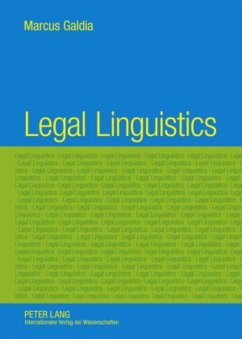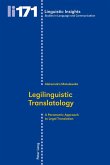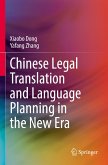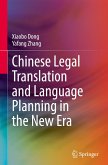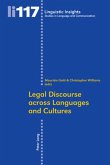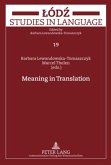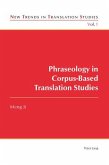This book introduces into the problems of Legal Linguistics. It starts with the most fundamental legal-linguistic question, i.e. how law is created and applied with linguistic means. In breaking down this vast question, the book identifies the linguistically relevant aspects of language use, especially its terminology, and scrutinizes the most significant legal-linguistic operations such as the legal argumentation, the legal interpretation, and the legal translation. Based on case analyses, it canvasses the language use strategies that are most instrumental in the developing of professionally convincing legal argumentation, primarily around terminological units. Towards the background of these and other linguistic operations in law, the book reflects upon some practical problems related to the regulation of language use and the emergence of the global law.
Bitte wählen Sie Ihr Anliegen aus.
Rechnungen
Retourenschein anfordern
Bestellstatus
Storno

